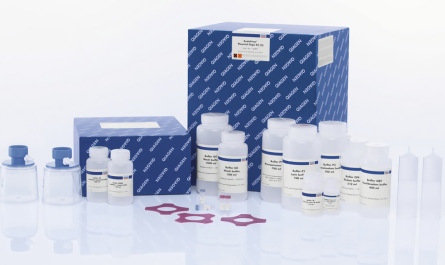Lung cancer diagnostic and screening includes various procedures and tests to diagnose lung cancer in individuals. Procedures involved are imaging tests like computed tomography (CT), biopsy, and molecular testing. These help detect lung cancers at an early stage.
The global Lung Cancer Diagnostic And Screening Market is estimated to be valued at US$ 2458.7 Mn in 2023 and is expected to exhibit a CAGR of 10.1% over the forecast period 2023 to 2030, as highlighted in a new report published by Coherent Market Insights.
Market key trends:
The increasing rate of lung cancer incidence globally is the major driver of this market. As per the World Health Organization (WHO), lung cancer is the leading cause of cancer deaths worldwide, accounting for around 1.8 million deaths annually. Early detection aids in effective treatment of the disease. This has increased the demand for advanced lung cancer screening and diagnostic tools. Moreover, innovation in molecular diagnostics with liquid biopsies is gaining popularity. Companies are focusing on developing non-invasive blood tests for lung cancer screening and to detect genetic mutations from circulating tumor DNA (ctDNA).
SWOT Analysis
Strength: The lung cancer diagnostic and screening market has advanced technologies such as low-dose computed tomography (CT) scans which can detect lung cancer at an early stage. CT scans allow doctors to see inside the lungs and check for abnormalities.
Weakness: CT scans expose patients to radiation which can increase the risk of other cancers over a lifetime with repeated scans. False positive results from CT scans can lead to unnecessary invasive follow-up tests like biopsies.
Opportunity: Rising awareness about the early detection of lung cancer and availability of various diagnostic tests provide growth opportunities to market players. Government initiatives to promote screening can boost the market.
Threats: High cost of diagnostic tests and preference for alternative treatment options are major threats faced by the market. Alternative diagnostic methods developed by new entrants can pose competition.
Key Takeaways
The Global Lung Cancer Diagnostic And Screening Market Size is expected to witness high growth, exhibiting CAGR of 10.1% over the forecast period, due to increasing incidence of lung cancer worldwide. According to WHO, lung cancer causes over 1.8 million deaths globally each year, making it the most common cause of cancer death among men and women.
Regional analysis: North America is expected to dominate the global lung cancer diagnostic and screening market during the forecast period. This is attributed to growing geriatric population, increasing awareness about lung cancer screening, and favorable reimbursement policies in the region. Asia Pacific is anticipated to exhibit the fastest growth rate owing to improving healthcare infrastructure and rising healthcare expenditure in developing countries.
Key players operating in the lung cancer diagnostic and screening market are Abbott, Illumina, Inc., Thermo Fischer Scientific, QIAGEN, Quest Diagnostics Incorporated, NeoGenomics, NanoString, Myriad Genetics Inc ., F. Hoffmann-La Roche Ltd, Danaher, Agilent Technologies, Inc., AstraZeneca, Sanofi, and Janssen Pharmaceuticals, Inc. Major players are focusing on launching novel diagnostic tools and molecular diagnostic tests to expand their product portfolios.
*Note:
1. Source: Coherent Market Insights, Public sources, Desk research
2. We have leveraged AI tools to mine information and compile it



